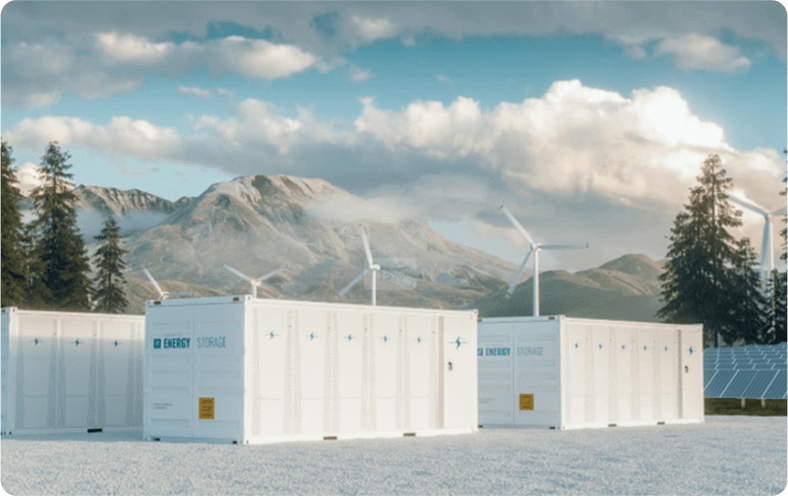Aug. 08, 2025
A liquid cooling system for batteries is a thermal management method that uses a circulating coolant to regulate battery temperature, ensuring optimal performance, safety, and lifespan. Compared to air cooling, liquid cooling is more efficient in transferring heat away from battery cells, making it essential for high-power applications such as electric vehicles, large-scale energy storage systems, and high-capacity solar battery packs.

The concept is simple but critical: batteries work best in a controlled temperature range—too hot, and they degrade faster; too cold, and their output suffers. Liquid cooling technology addresses these challenges directly.
As battery technology advances, the energy density (amount of energy stored per unit of volume) continues to rise. While this enables more compact and powerful battery packs, it also creates higher thermal loads during charging and discharging. Without effective cooling, problems such as:
● Accelerated aging due to high temperatures
● Reduced charge/discharge efficiency
● Thermal runaway risks in extreme cases
● Uneven cell temperatures, leading to performance imbalance
It can significantly shorten the battery’s useful life.
Thermal management systems—especially liquid cooling battery packs—are therefore not optional in demanding applications. They are a core component of modern battery engineering.
A typical liquid cooling battery pack integrates a network of cooling plates, tubes, or channels in direct contact with or close to the battery cells. Here’s the process:
● Coolant Circulation – A specially formulated liquid (often glycol-water mix) flows through the channels to absorb heat from the battery cells.
● Heat Transfer – The heated coolant is pumped to a heat exchanger or radiator, where excess heat is released to the ambient environment.
● Temperature Control – Sensors continuously monitor battery temperature, and a control unit adjusts coolant flow to keep temperatures within the ideal range.
Because liquids have a much higher thermal conductivity than air, liquid cooling systems can maintain a stable temperature across all cells, even under high load or fast-charging conditions.
● Superior Cooling Efficiency – Capable of removing large amounts of heat quickly, even in compact battery layouts.
●Temperature Uniformity – Reduces cell-to-cell temperature differences, improving pack performance and lifespan.
● Scalability – Suitable for everything from residential energy storage systems to utility-scale battery farms.
● Enhanced Safety – Minimizes risks of overheating and thermal runaway.
● Supports High-Power Operation – Enables faster charging and discharging without compromising battery health.
→ Electric Vehicles (EVs)
EV battery packs generate substantial heat during rapid acceleration and DC fast charging. Liquid cooling ensures efficiency and prolongs battery life while maintaining safety.
→ Utility-Scale Energy Storage
In large containerized storage systems, like those connected to solar or wind farms, hundreds of battery modules operate simultaneously. A liquid cooling system ensures thermal balance across the entire array, preventing performance bottlenecks.
→ High-Capacity Solar Battery Packs
For homes and businesses aiming for maximum solar self-consumption, liquid cooling battery packs allow batteries to operate at optimal temperatures even during peak summer heat or high load demand.
| Feature | Liquid Cooling | Air Cooling |
|---|---|---|
| Cooling Efficiency | High – suitable for high-load, high-density packs | Moderate – limited in high-heat scenarios |
| Temperature Uniformity | Excellent | Average |
| System Complexity | Higher (requires pumps, coolant, heat exchanger) | Lower (fans, ducts) |
| Maintenance | Moderate | Low |
| Applications | EVs, utility-scale storage, high-capacity solar packs | Small-scale residential, low-power systems |
For high-performance storage, liquid cooling often outweighs its added complexity.
As energy storage moves toward higher capacity, faster charging, and denser configurations, liquid cooling will become even more important. Innovations like micro-channel cooling plates, phase-change coolant fluids, and AI-controlled thermal systems are already being integrated into next-generation storage products.
At SolarEast, we design and deliver advanced liquid cooling battery pack solutions for residential, commercial, and utility-scale applications. Our systems combine:
High-efficiency LFP battery technology for safety and longevity
Precision-engineered liquid cooling systems for optimal temperature control
Smart energy management to maximize clean energy usage and reduce costs
Customizable configurations for off-grid, hybrid, and grid-connected setups
Whether you need a home battery that works flawlessly in extreme heat, a commercial system that cuts peak demand costs, or a utility-scale solution with unmatched reliability, SolarEast offers end-to-end engineering, installation, and support.
Power your future with technology that runs cooler, lasts longer, and performs better—discover SolarEast today.
Related Products
Related Solutions
Residential Energy Storage System Solutions
+ -SolarEast's residential energy storage system, designed for homes, villas, sunrooms, and communities, stores solar energy to reduce power bills and ensure reliable day-and-night energy use.
Utility Scale Energy Storage Solutions
+ -Optimize Energy Efficiency. Cut Costs. Embrace Sustainability. SolarEast Battery Energy Storage Systems provides customized BESS solutions for industrial parks, farm energy storage solutions, and C&I Energy Storage System to reduce peak demand charges, stabilize power supply, and enable smart energy management. Our industrial and commercial energy storage systems cover a full range of products from 30kWh to 5MWh, including small integrated energy storage devices and large customized energy storage solutions, which are widely used in microgrids, off-grid power supply, peak cutting and valley filling, demand side management and backup power.
Commercial & Industrial Storage System Solutions
+ -SolarEast BESS is a supplier of lithium iron phosphate batteries, microgrid energy, large-scale battery storage, grid-scale energy storage, high-voltage energy storage batteries, and energy storage solutions. SolarEast solar batteries and solutions are recognized and welcomed by customers worldwide. Our targets are focused on the following markets: industrial and commercial energy storage systems, Telecom Energy Storage Systems (TESS), transportation/utility energy storage, and large/medium/small backup power systems.


